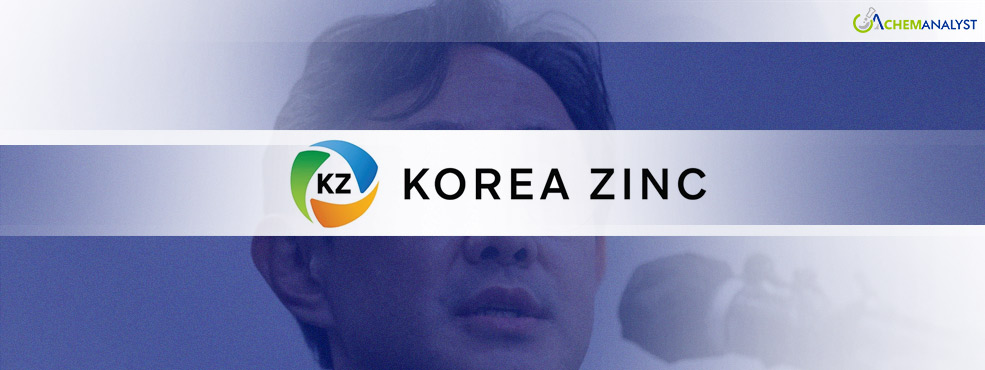Welcome To ChemAnalyst

On Monday, Korea Zinc revealed that it has completed a buyback of 9.85% of its own shares for $1.5 billion. This initiative aims to discourage shareholders from divesting their stakes to its primary investor, Young Poong, as well as to the private equity firm MBK.
In a related development, Bain Capital, which is a supporter of Korea Zinc’s current leadership team, has successfully acquired a 1.41% stake in the company. This information was disclosed in a regulatory filing from Korea Zinc, the world’s largest zinc smelter. The acquisition underscores Bain Capital's commitment to the company’s strategic direction and governance as it navigates its business landscape.
The Choi family, which oversees Korea Zinc, is currently engaged in a contentious power struggle for control of the $18 billion zinc company with the co-founding Chang family. This dispute has been exacerbated by the recent activities of Young Poong, the conglomerate led by the Chang family, which made an initial joint offer with private equity firm MBK in September. This move was seen as an attempt to strengthen their position within the company and challenge the Choi family's leadership. As tensions rise, both families are navigating a complex landscape of corporate governance and strategic interests, with the future direction of Korea Zinc hanging in the balance.
The latest developments indicate that the support for Korea Zinc’s management is currently less than that of MBK and Young Poong, raising investor concerns about a prolonged takeover struggle and pushing Korea Zinc's shares to high records on Monday.
Together, MBK and Young Poong hold approximately 38.5% of Korea Zinc. Prior to the buyback, the Choi family had backing from shareholders owning about 36% of the company, including key strategic partners like Hyundai Motor Group.
Korea Zinc stated that it has invested 2.07 trillion won ($1.5 billion) in the buyback and plans to cancel all newly acquired shares to enhance shareholder value. This cancellation will prevent an increase in the Choi family's stake relative to their rivals.
On Monday, shares of Korea Zinc saw a remarkable surge, climbing by as much as 11.7% to reach 1.4 million won, which is 57% above the buyback price of 890,000 won. The stock ultimately closed up 3.8% at this record high, reflecting strong investor confidence amidst the ongoing corporate battle for control of the company.
This price increase is particularly significant given the context of dwindling share availability in the market. Both the Choi and Chang families have made tender offers, which has led to a tighter trading environment as shareholders weigh their options amid the escalating rivalry. The tender offers from both sides not only heighten competition but also add to the volatility of the stock, influencing market dynamics as investors react to the potential outcomes of this high-stakes dispute.
The Korea Exchange issued a warning late Monday, stating that if the share price continues to rise sharply and meets certain criteria, trading of Korea Zinc shares may be suspended.
Meanwhile, shares of Young Poong rose by 7.45%.
On Monday, MBK put forth the nomination of 14 new directors for the board of Korea Zinc, which currently comprises 13 members. This initiative is part of MBK's efforts to enhance its influence within the company. Additionally, they have requested an extraordinary shareholder meeting, as reported by a news agency, signalling a desire for substantial changes in the company’s governance amid the ongoing control dispute between the Choi and Chang families.
Support from various shareholders perceived as aligned with the Choi family, including Hyundai Motor, Hanwha Group, and LG Chem, remains unannounced.
The National Pension Service of South Korea, recognized as the world’s third-largest pension fund, held a 7.83% stake in Korea Zinc as of the end of June. This significant ownership position is anticipated to play a crucial role in the unfolding dynamics of the company's governance and the ongoing power struggle between the Choi and Chang families. Given its substantial stake, the National Pension Service may influence key decisions and support initiatives that align with its investment strategies.
We use cookies to deliver the best possible experience on our website. To learn more, visit our Privacy Policy. By continuing to use this site or by closing this box, you consent to our use of cookies. More info.
